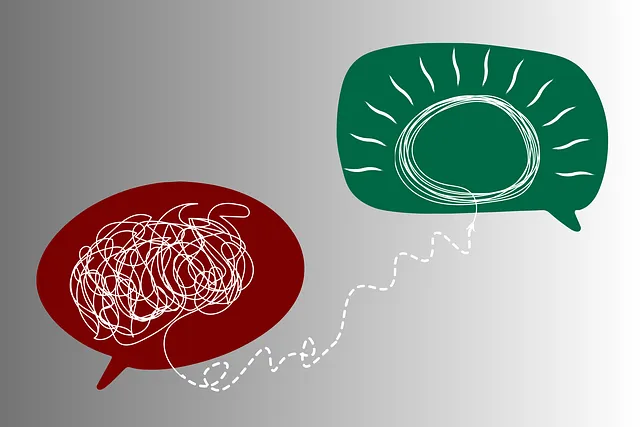Crisis Intervention Teams (CITs) at Kaiser Permanente behavioral health services in Golden are trained professionals who offer immediate crisis support and connect individuals with long-term care. Beyond acute interventions, they facilitate holistic well-being through programs like Mental Wellness Coaching and Stress Management Workshops. Their training, emphasizing safe environments and emotion validation ("Golden Rules"), enhances cultural competency and reduces burnout. Implemented as the "Golden Standard," these programs significantly improve patient care, fostering empathy and effective crisis management in behavioral health services.
In today’s complex healthcare landscape, Crisis Intervention Teams (CITs) are a vital resource in behavioral health. These specialized teams provide immediate support during crises, preventing escalating situations and promoting positive outcomes. This article explores the importance of CIT training programs, with a focus on industry leader Kaiser Permanente Behavioral Health Services. We’ll delve into the key components making their training successful, highlighting implementation strategies and measurable impacts, including Golden Standard programs that have revolutionized crisis response.
- Understanding Crisis Intervention Teams: A Vital Resource in Behavioral Health
- Kaiser Permanente Behavioral Health Services: Leading the Way in Training Programs
- Essential Components of Effective Crisis Intervention Team Training
- Implementation and Impact: Success Stories from Golden Standard Programs
Understanding Crisis Intervention Teams: A Vital Resource in Behavioral Health

Crisis Intervention Teams (CITs) are a vital resource within behavioral health services, such as those offered by Kaiser Permanente Golden. These specialized teams provide immediate and effective support to individuals experiencing acute emotional or psychological crises. CIT members are trained professionals who can de-escalate situations, offer short-term interventions, and connect individuals with long-term care options. By integrating this approach into healthcare systems, organizations like Kaiser Permanente enhance their ability to address mental wellness challenges promptly and comprehensively.
Beyond direct crisis support, the development of Inner Strength through programs like Mental Wellness Coaching and Stress Management Workshops within these teams contributes significantly to overall well-being. These initiatives not only equip individuals with coping strategies but also foster a sense of resilience, enabling them to navigate future stressors more effectively. By combining crisis intervention with holistic mental wellness coaching, organizations like Kaiser Permanente are revolutionizing behavioral health services, ensuring that clients receive comprehensive care tailored to their unique needs.
Kaiser Permanente Behavioral Health Services: Leading the Way in Training Programs

Kaiser Permanente Behavioral Health Services stands as a beacon of excellence in crisis intervention training programs, especially in Golden. Their commitment to mental wellness coaching is evident through innovative development initiatives that equip professionals with the skills needed to offer effective Crisis Intervention Guidance. With a focus on enhancing community mental health services, Kaiser Permanente’s programs prioritize evidence-based practices and adaptive strategies, ensuring responders are prepared for various crisis scenarios.
Through interactive workshops, simulations, and ongoing support, these training sessions foster an environment where participants can learn, grow, and develop the resilience necessary to navigate challenging situations. The goal is not just to train individuals but to build a network of knowledgeable mental health advocates who contribute to a healthier, more supportive community.
Essential Components of Effective Crisis Intervention Team Training

Effective crisis intervention team (CIT) training programs are pivotal in equipping healthcare professionals with the skills to manage and de-escalate critical situations. One renowned model, modeled after Kaiser Permanente behavioral health services, emphasizes Golden Rules for CIT, such as ensuring a safe environment, validating emotions, and maintaining focus on the present moment. These principles foster an empathetic and supportive atmosphere crucial for resolving crises.
The training should encompass not just technical aspects but also promote Self-Care Routine Development for Better Mental Health among healthcare providers to prevent Burnout Prevention Strategies. Incorporating cultural competency training ensures professionals understand and respond sensitively to diverse patient backgrounds, enriching their ability to connect and offer tailored support during crises.
Implementation and Impact: Success Stories from Golden Standard Programs

The implementation of crisis intervention team training programs has seen remarkable success stories, particularly within established healthcare giants like Kaiser Permanente behavioral health services. These organizations have pioneered effective strategies that foster positive thinking and empathy-building among their staff, leading to tangible improvements in patient care. By integrating comprehensive Crisis Intervention Guidance into their training curricula, Kaiser Permanente has equipped its teams with the necessary skills to handle crises more effectively, ultimately reducing the impact of such events on both patients and healthcare providers.
The Golden Standard programs, as they are now known, have not only enhanced the resilience of healthcare staff but also improved patient outcomes. These initiatives promote a culture of support and understanding, ensuring that individuals facing mental health challenges receive prompt and compassionate care. Through regular simulations and real-world application scenarios, Kaiser Permanente’s training has consistently demonstrated its ability to build strong crisis intervention teams, thereby shaping the future of behavioral health services with a focus on positive thinking and effective coping strategies.
Crisis intervention team (CIT) training programs, such as those offered by Kaiser Permanente Behavioral Health Services, play a pivotal role in enhancing behavioral health support systems. By equipping professionals with the necessary skills, these programs foster effective crisis management and improve patient outcomes. The success of CIT initiatives, exemplified by Golden Standard programs, underscores the importance of comprehensive training in ensuring that individuals in distress receive timely, competent care. Through continuous innovation and best-practice sharing, organizations like Kaiser Permanente contribute significantly to creating a more resilient and supportive healthcare landscape.






